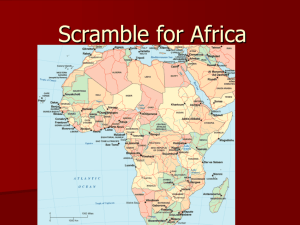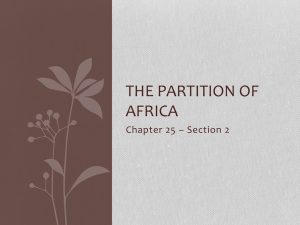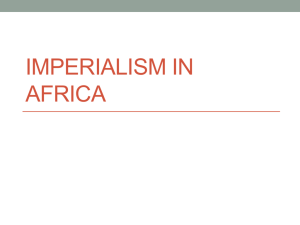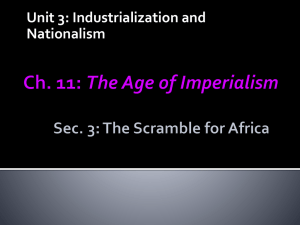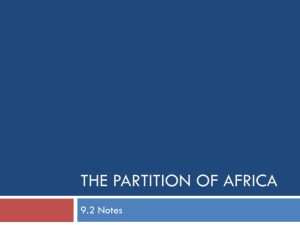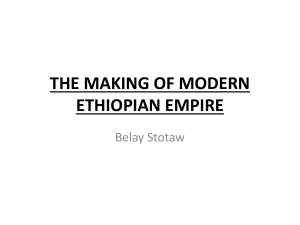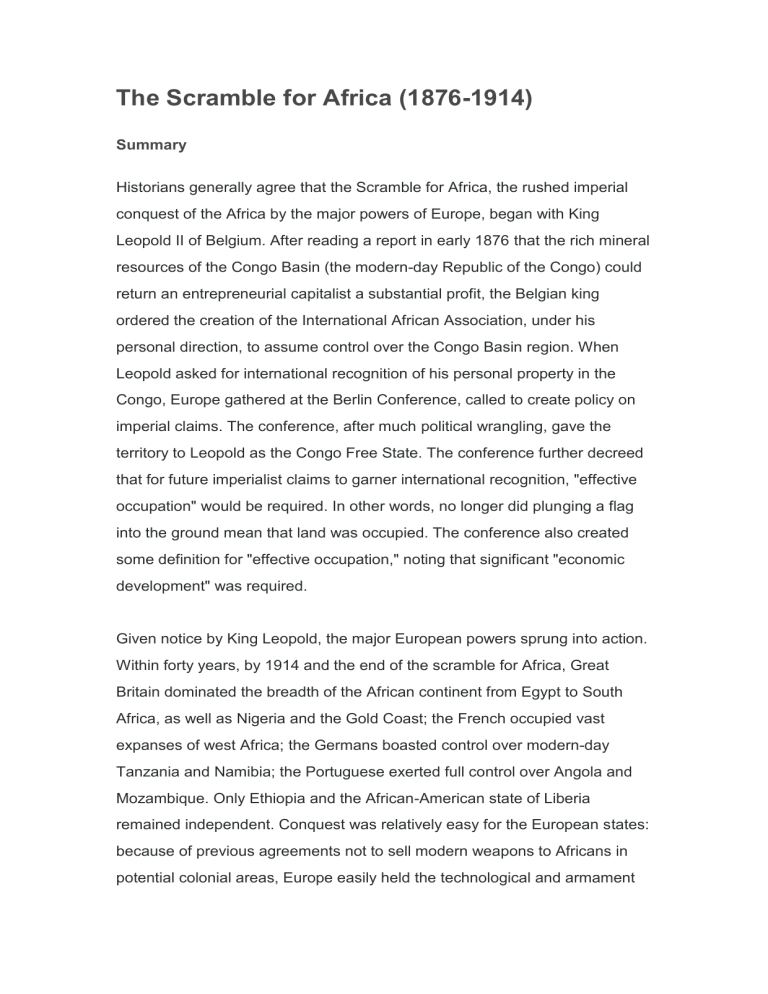
The Scramble for Africa (1876-1914) Summary Historians generally agree that the Scramble for Africa, the rushed imperial conquest of the Africa by the major powers of Europe, began with King Leopold II of Belgium. After reading a report in early 1876 that the rich mineral resources of the Congo Basin (the modern-day Republic of the Congo) could return an entrepreneurial capitalist a substantial profit, the Belgian king ordered the creation of the International African Association, under his personal direction, to assume control over the Congo Basin region. When Leopold asked for international recognition of his personal property in the Congo, Europe gathered at the Berlin Conference, called to create policy on imperial claims. The conference, after much political wrangling, gave the territory to Leopold as the Congo Free State. The conference further decreed that for future imperialist claims to garner international recognition, "effective occupation" would be required. In other words, no longer did plunging a flag into the ground mean that land was occupied. The conference also created some definition for "effective occupation," noting that significant "economic development" was required. Given notice by King Leopold, the major European powers sprung into action. Within forty years, by 1914 and the end of the scramble for Africa, Great Britain dominated the breadth of the African continent from Egypt to South Africa, as well as Nigeria and the Gold Coast; the French occupied vast expanses of west Africa; the Germans boasted control over modern-day Tanzania and Namibia; the Portuguese exerted full control over Angola and Mozambique. Only Ethiopia and the African-American state of Liberia remained independent. Conquest was relatively easy for the European states: because of previous agreements not to sell modern weapons to Africans in potential colonial areas, Europe easily held the technological and armament advantage. Bands of just a few hundred men and barely a handful of machine guns could obliterate thousands of Africans in mere hours. The only notable exception to this was Ethiopia, a strategically (especially after the opening of the Suez Canal) placed state at the horn of Africa. By the early 1870s, Ethiopia was in danger of invasion from the British, French, and Italians. With Britain occupying Egypt in 1882, France taking Djibouti in 1884, and Italy dominating Eritrea in 1885, Ethiopia's Emperor Menelik II hatched a daring plan: he would exploit European rivalries and competing interests for the benefit of his country by playing one European power against the other to obtain the modern weapons he needed to protect the boundaries of his state. After Menelik II gave minor concessions to France in return for weapons, Italy grew nervous of the growing French interest in the country and offered Menelik Italian weapons, as well. Soon, Britain and even Russia joined in the game. Throughout the 1880s, Ethiopia grew stronger and stronger as the scramble for Africa went on around it. However, by the early 1890s, Menelik's plans began to unravel as war seemed imminent. In 1889, Italy claimed Ethiopia as an Italian protectorate. When Menelik objected, Italy moved against the emperor all of Europe had armed for over a decade. Italy, longing for a glorious victory to enhance its prestige, ordered its troops into battle. Outnumbered and outequipped, the Italians lost over eight thousand men in the Battle of Adowa on 1 March 1896. Ethiopia remained independent. Commentary Why empire? What were the motives for empire in general, and in Africa specifically? We can speak of this in general and specific terms. When one asks, say, "Why did Great Britain decide to take Kenya?", we may answer that it was a necessary stop in London's goal to control a north-south corridor in Africa. Others claimed lands so their enemies would not. Still others dominated certain areas to please missionaries already in place. Various specific reasons dominate any discussion of the specifics of the scramble for Africa; however, what were the motives for empire in general? Let us take a few possibilities in turn. Economics: The economic potential of empire, as Britain and Spain had been proving for centuries, was unquestionable. Empire could insulate the mother country from dangerous booms and busts in the economic cycle by keeping markets open and exclusive. Mercantile policies could increase revenues and natural resources could shore up the treasury. Geopolitics: Some of these areas were strategically important for maintaining trade routes to Asia or maintaining refueling station for a world- wide navy. The Horn of Africa, the southern tip of the continent, and the west- African coast were all strategic locations for world control. Inside the continent, territory was important for its location. Great Britain, hoping to link Cairo in the north with Cape Town in the south, wanted north-south dominion; therefore, all the territory between those two points gained strategic value. Nationalism: To report back home and throughout Europe that one nation acquired thousands of square miles of territory and millions of captive populations enhanced the prestige of that state throughout the world and for its own people. To be a victor in the imperial game meant great national pride and, thus, the improvement of the ruling party back at home. Liberalism: Many students tend to overlook or not understand this element, and its counterintuitive nature forces it out of many history textbooks. The liberal tradition of Europe emphasized not equality, as we do today, but selfimprovement and the perfectibility of man. This belief, combined with Charles Darwin's New Science and the warping of the statement "survival of the fittest" by social Darwinism, encouraged the view that Europe was going down into the so-called Dark Continent to raise up and civilize the savage natives. Nothing could be more paternalistic or racist in outlook; however, as odd as it may seem, imperialism is thus associated with the liberal view of the perfectibility of man. While much of Europe enthusiastically participated in and looked upon the colonization of Africa, it would be simplistic to claim that imperialist policies were everywhere admired. In terms of its depiction of the negative affects of African imperialism on both Africa and Europe, and its depiction of the processes of Imperialism itself, perhaps no account is quite so powerful as Joseph Conrad's 1905 Heart of Darkness. Conrad's personal distaste for colonialism should not be taken as a compendium of all the criticisms of the imperial game, but in addition to the themes and issues it does deal with, it can be seen as an indication that a lively debate did exist as to the motives and affects of imperial actions.
